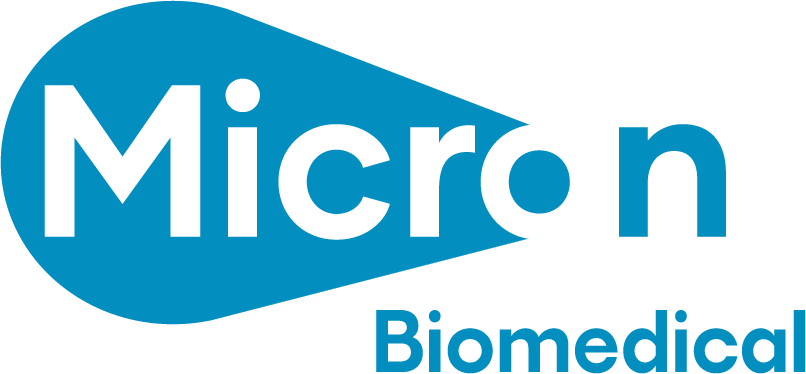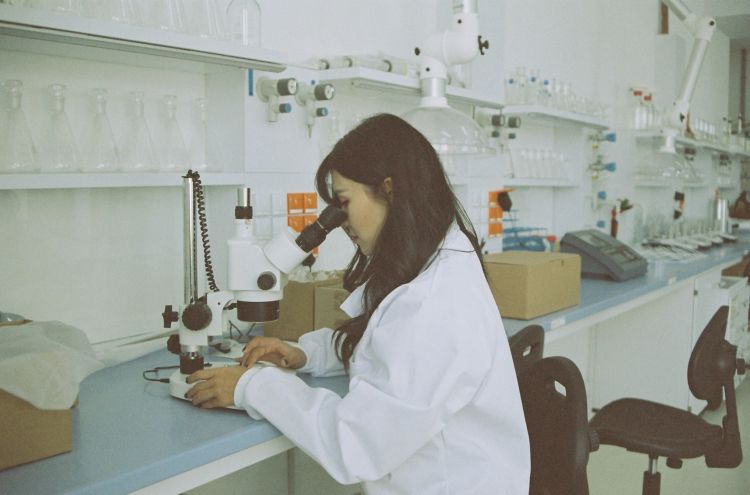Micron Biomedical Receives $23.6 Million to Accelerate Commercial Manufacturing of Needle-Free Vaccines and to Help Eradicate Measles
November 16, 2023
- Micron has received this grant from the Bill & Melinda Gates Foundation to fund mass production of needle-free vaccines utilizing Micron technology to expand the accessibility of measles-rubella vaccine in developing countries
- New support from the foundation builds on a grant received in 2017 that enabled the first-ever clinical trial of microarray technology in children
- Increased manufacturing capacity will create infrastructure for large clinical trials and commercial availability of needle-free vaccine delivery
November 16 2023, ATLANTA– Micron Biomedical, a life science company developing first-in-class dissolvable microarray-based products that simplify and improve the transport, storage, and administration of drugs and vaccines, today announced a $23.6 million grant from the Bill & Melinda Gates Foundation that will fund mass production of needle-free vaccines. The manufacturing facility will enable commercialization of the first microarray technology-based measles-rubella vaccine, indicated for children as young as 9 months, once approved by the appropriate regulatory authorities following additional clinical study.

In low- and middle-income countries, measles remains a leading cause of death, primarily due to limited access to vaccines that require refrigeration during transport and storage and clinicians to administer them. Micron is developing a needle-free version of the measles-rubella (MR) vaccine based on its microarray technology. The technology reduces the need for a cold chain and allows a community health worker to vaccinate a child within minutes by applying the technology to the skin and pressing a button that confirms administration. The administration of the vaccine is virtually pain-free.
“Vaccines are among the most effective and cost-effective tools to prevent measles and rubella, diseases that account for an estimated 350 deaths per day with a disproportionate impact on people living in low- and middle-income countries,” said James Goodson, Senior Scientist and Epidemiologist in the Global Immunization Division at the Centers for Disease Control and Prevention (CDC). “Microarray-based measles-rubella vaccines could provide an alternative approach to delivering these life-saving vaccines to children in regions with some of the highest rates of unimmunized children in the world and could help overcome some of the most substantial barriers to eradicating measles and rubella globally.”
According to the World Health Organization, all children should be vaccinated against measles between the ages of 9 and 15 months, then again between 15–18 months. Earlier this year, Micron announced successful clinical data from a phase I/II study in the Gambia, which evaluated the safety, immunogenicity, and acceptability of the leading commercially available MR vaccine delivered by Micron’s microarray technology in adults, toddlers and infants as young as 9 months old.
“We’re grateful to the Bill & Melinda Gates Foundation for the grant that allows us to build on our collaborative track record of bringing effective and life-saving vaccines to children and adults in communities with limited infrastructure,” said Steven Damon, CEO of Micron Biomedical. “By supporting Micron’s efforts to develop a state-of-the-art, high-quality and large-scale production facility to manufacture our microarray technology, we have an opportunity to greatly improve on access and availability of measles/rubella vaccines, as well as other traditionally-injectable
Global Health vaccines, in underserved populations around the world. This first commercial-scale production facility establishes Micron’s proof of concept for additional commercial vaccines and drugs in all markets globally.”
Micron’s technology has been recognized for its potential to achieve positive global impact.
In addition to the opportunity to improve access to vaccines and therapeutics in low- and middle-income countries, Micron’s technology has an opportunity to improve health globally as the evidence reflects that patient reluctance to receive injectable medicine can lead to delayed therapy, treatment avoidance, and vaccine hesitancy in higher income countries. The technology’s broad impact also includes US national health security, as well as veteran and military health.
About Micron Biomedical
Micron Biomedical is the leader in dissolvable microarray-based, drug and vaccine administration technology. Micron Biomedical is a clinical-stage life science company on a rapid path to commercializing its proprietary dissolvable, microarray technology. Micron’s technology is designed to improve access and achieve better health outcomes globally through injection-free, painless, and simple and/or self-administration of drugs and vaccines, and by eliminating or reducing the need for cold chain transport and storage, enhancing safety and efficacy, and improving patient compliance. Micron partners with and/or receives funding from private and public pharmaceutical and biotech companies, the Bill & Melinda Gates Foundation, the Centers for Disease Control and Prevention (CDC), PATH and the Georgia Research Alliance.
For more information visit www.micronbiomedical.com.





